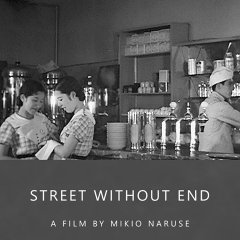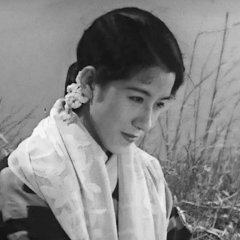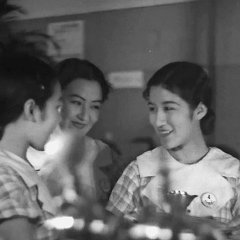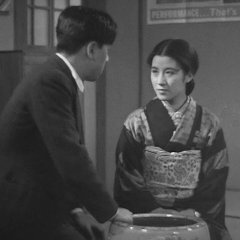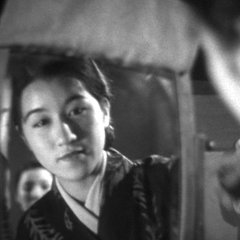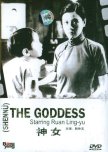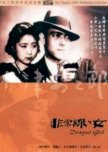Naruse Mikio’s final silent film is a gloriously rich portrait of a waitress, Sugiko, whose life, despite a host of male admirers and even some intrigued movie talent scouts, ends up taking a suffocatingly domestic turn after a wealthy businessman accidentally hits her with his car. Edit Translation
- English
- magyar / magyar nyelv
- dansk
- Norsk
- Native Title: 限りなき舗道
- Also Known As: Kagiri Naki Hodou , Kagiri Naki Hodo
- Director: Naruse Mikio
- Genres: Historical, Drama
Cast & Credits
- Shinobu SetsukoShima SugikoMain Role
- Isono AkioKoichi [Sugiko's younger brother]Support Role
- Okada SozoYamauchi HiroshiSupport Role
- Himori ShinichiYamamura ShinkichiSupport Role
- Katsuragi Fumiko[Yamauchi's mother]Support Role
- Yuki IchiroHarada MachioSupport Role
Reviews

This review may contain spoilers
Sometimes Love Just Ain't Enough
Director Naruse imbued his female lead with more backbone and rational thinking than all the male leads put together in this his last silent film. Despite being a melodrama, he managed to showcase the clash of societal classes and the detriments of wish fulfillment.Sugiko is a hard-working waitress who works with her friend, Kesako, at what appears to be a House of Pancakes, a tea house that serves American style pancakes. Her boyfriend asks her to marry him even though his parents back home are pressuring him into an arranged marriage. Around the same time, movie scouts want her to be the next big thing actress. Barely tempted with the acting offer, she rushes to meet her boyfriend when melodrama enters the scene and she is struck by a car. The rich owner of the car picks her up, before we knew to not move an unconscious victim, and holding her has them driven to a hospital. Of course, the boyfriend sees them driving by and when she doesn’t show up that night hightails it out of town to mommy and daddy. As she recovers in the hospital, Hiroshi, the rich man, falls in love with her. Before you can say, I’ll take the Rooty Tooty Fresh and Fruity, the two are married and living with his disapproving mother and sister. Hiroshi doesn’t have the strength to defend himself, much less Sugiko, leaving her to his family’s tender care.
The mother-in-law scolds Sugiko for being too friendly to the servants. The sister tries to create vile rumors about her and both scowl and skulk every chance they get. Eventually, Hiroshi begins to drink heavily and comes home later and later.
Meanwhile, Sugiko’s friend, Kesako, becomes an actress and has her bumbling artist boyfriend hired on to paint scenery. Ultimately, she finds that acting is not all it’s cracked up to be and begins to regret her decision.
Sugiko finally confronts Hiroshi and tells him she’s leaving so that he can figure out what he wants. Apparently, what he wants is to drive too fast with another woman in his car. A bookended car wreck brings the drama to a close. Sugiko confronts her in-laws and also tells Hiroshi a final good-bye. No histrionics, no forgiveness and romantic ending, just a realistic view of a woman who had been pushed too far. I cheered as she walked away tall.
Both Sugiko and Kesako ended up much where they started but much wiser. They had grown to understand what they did and didn’t want in life and also had greater self-respect and confidence. A final bus scene, seemed enigmatic to me. Was it a glimpse into the future or a farewell to the past?
The movie is badly faded with some skipping issues, combined with Naruse’s rather choppy way of filming with lots of set up shots held for only a few seconds could be distracting. I enjoyed the Debussy music that had been added to the film, its romantic theme fitting in quite well with the drama onscreen. The actors all put their own stamp on their characters, but the best part was Shinobu Setsuko when she set her gaze and showed Sugiko’s inner strength at the end, her freedom hard won.
Street Without an End was a short, entertaining melodrama whose strength lie in showing how love can’t always conquer class struggles and how a woman found her independence and courage to live her life her way.
1/11/23
Was this review helpful to you?
Recommendations
There have been no recommendations submitted. Be the first and add one.








